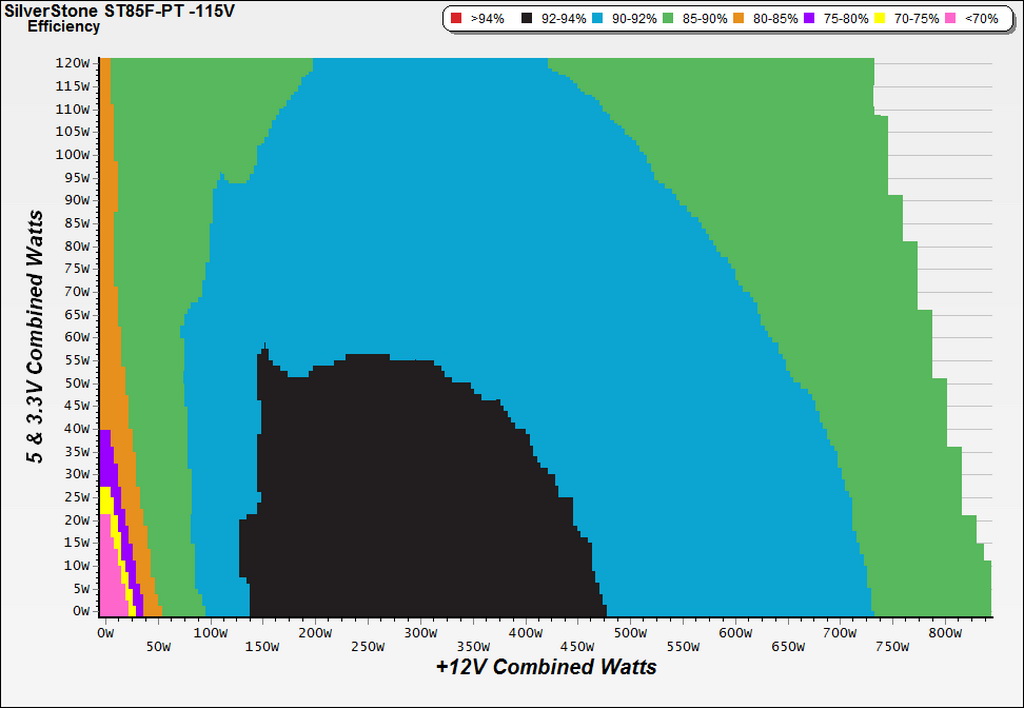SilverStone Strider Platinum ST85F-PT PSU Review
SilverStone's Strider Platinum series offers compact dimensions along with Platinum efficiency and a fully modular cable design. The 850W member of this line will be evaluated today. Its strong card against the competition is the 471W power density score.
Why you can trust Tom's Hardware
Cross-Load Tests And Infrared Images
Our cross-load tests are described in detail here.
To generate the following charts, we set our loaders to auto mode through our custom-made software before trying more than 25,000 possible load combinations with the +12V, 5V and 3.3V rails. The load regulation deviations in each of the charts below were calculated by taking the nominal values of the rails (12 V, 5 V and 3.3 V) as point zero.
Load Regulation Charts
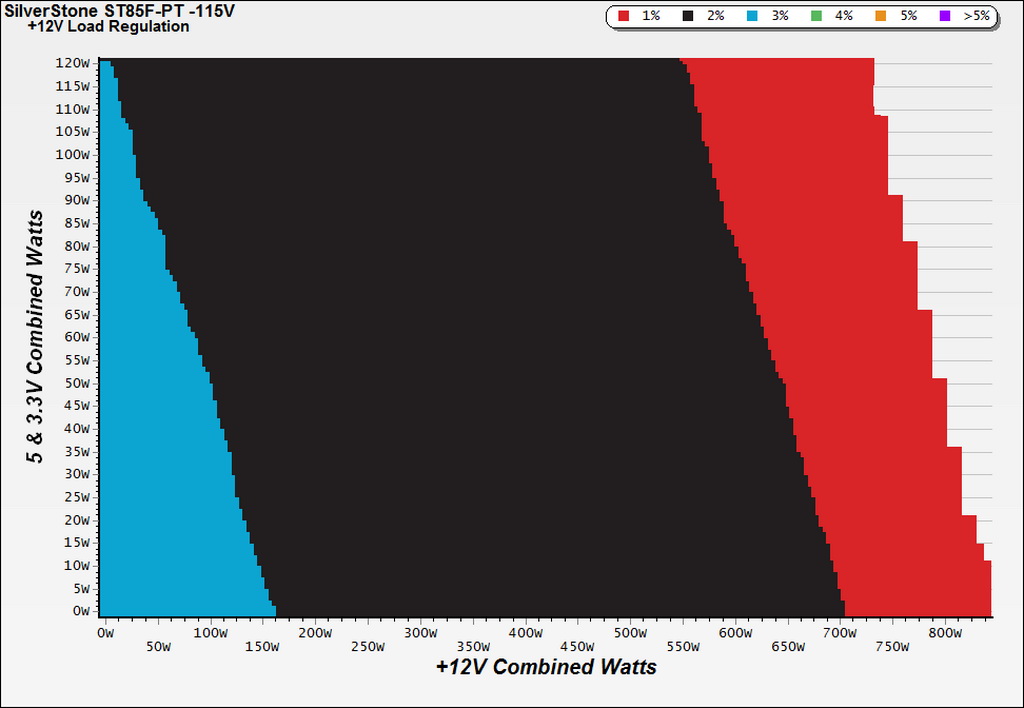
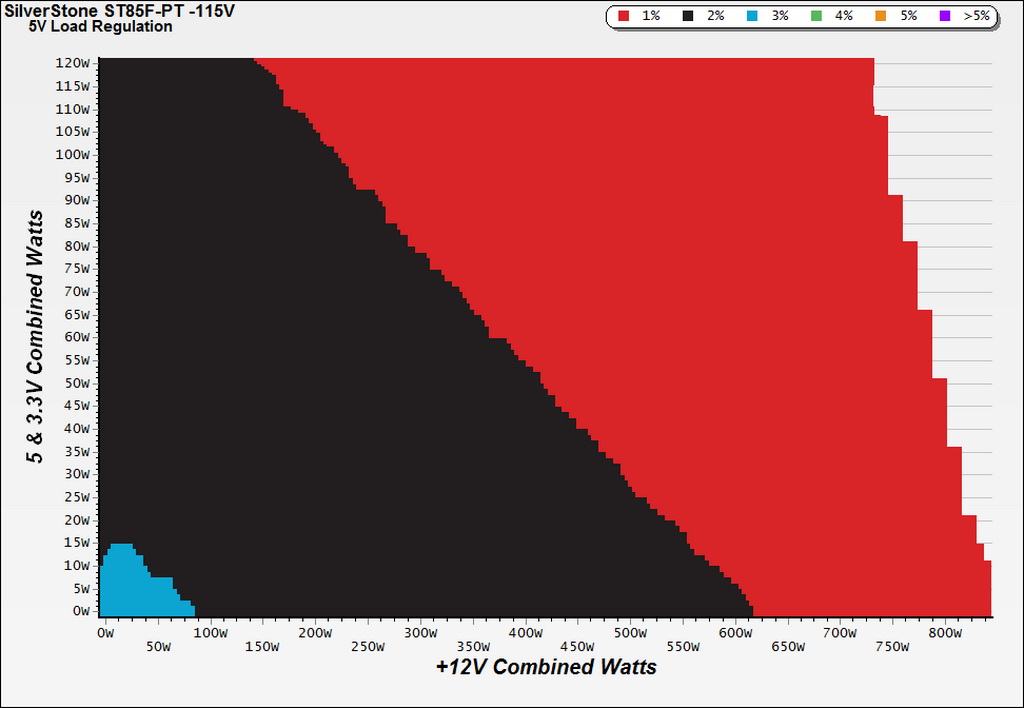
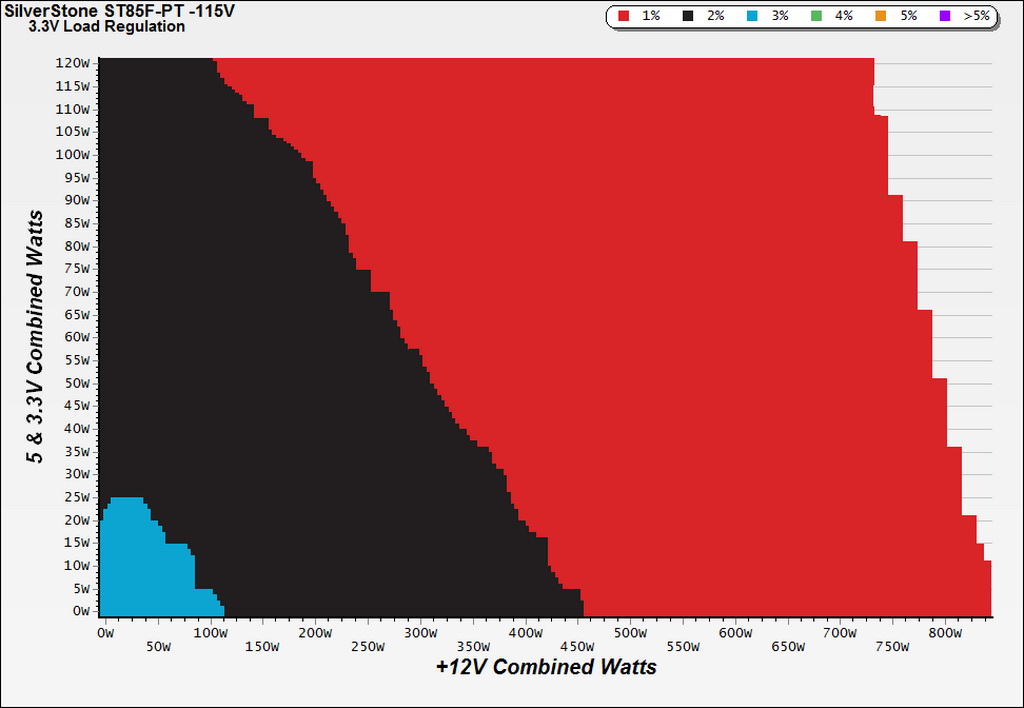
Efficiency Chart
Even for an 80 PLUS Platinum power supply, the ST85F-PT's efficiency levels are quite high. In the 150 W to 490 W load region, efficiency lands between 92%-94% so long as you keep the combined load on the minor rails below 50 W.
Ripple Charts
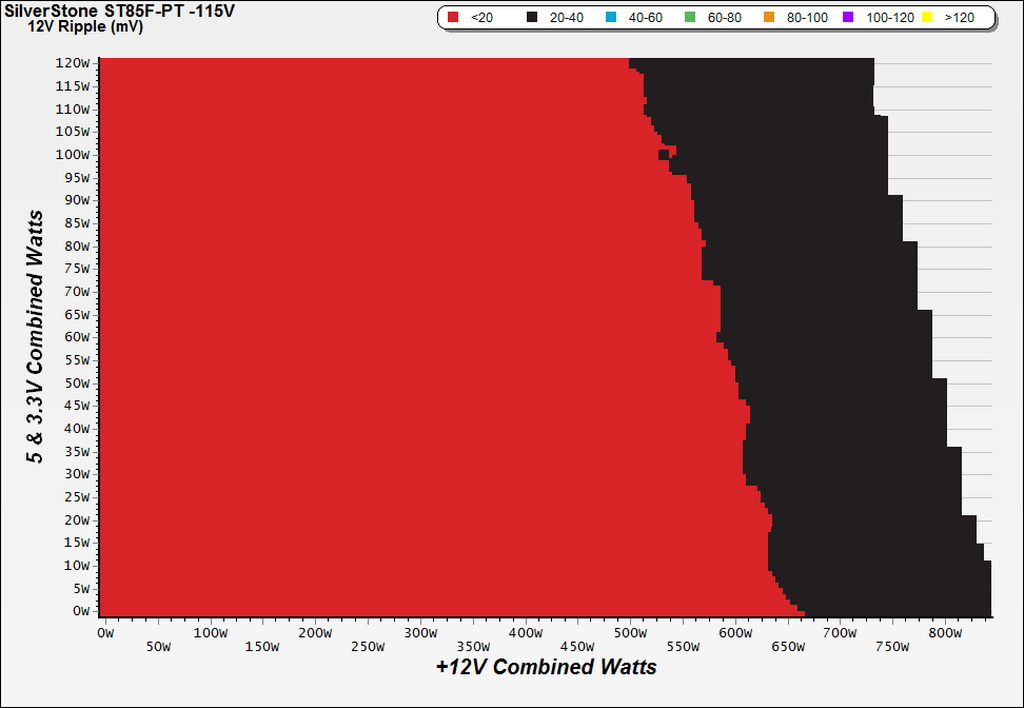
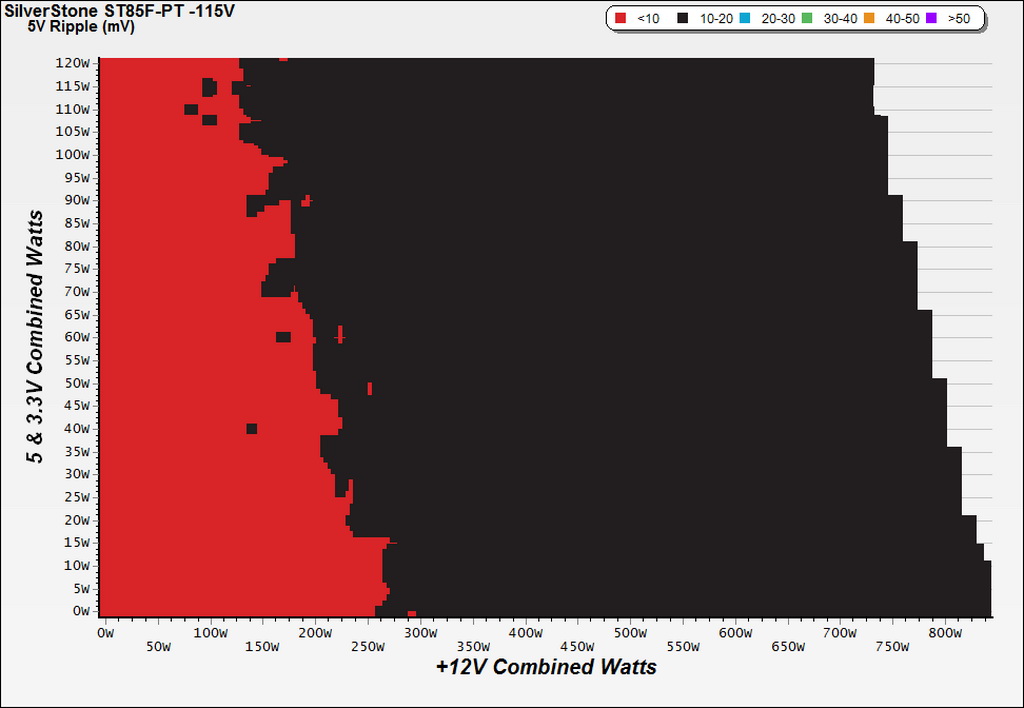
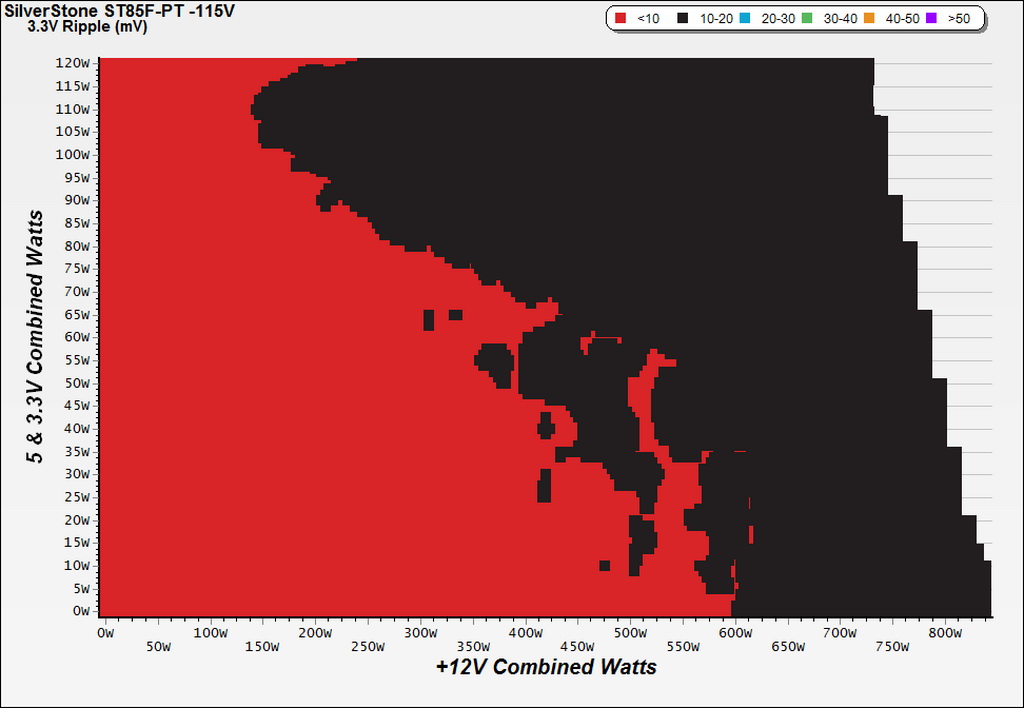
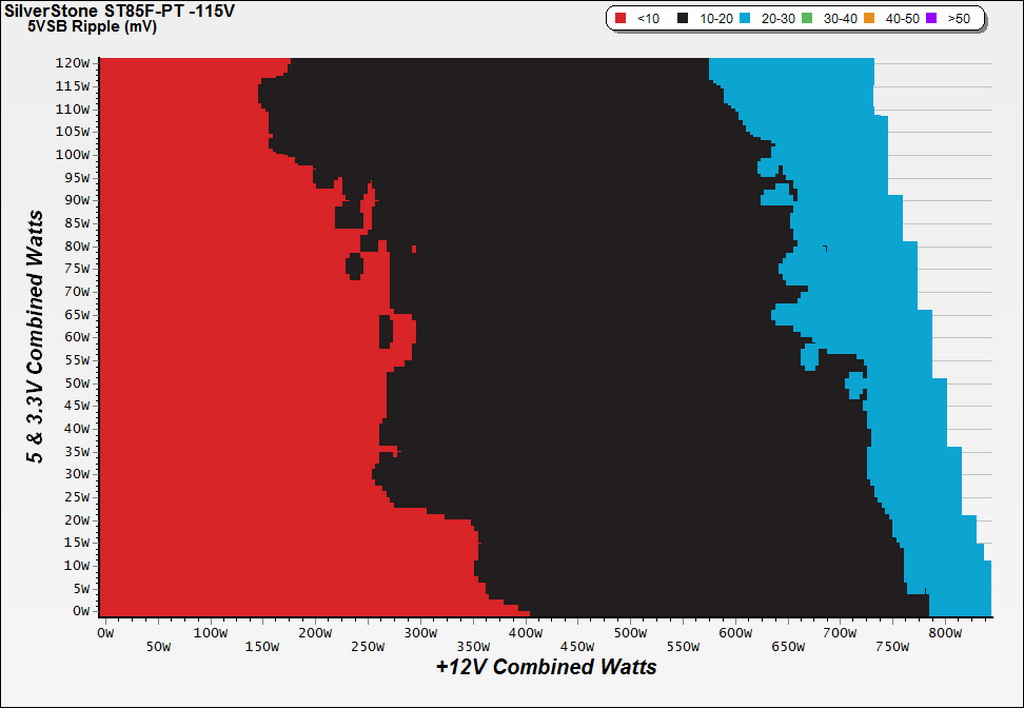
Infrared Images
Toward the end of the cross-load tests, we took some photos of the PSU with our modified FLIR E4 camera that delivers 320x240 IR resolution (76,800 pixels).
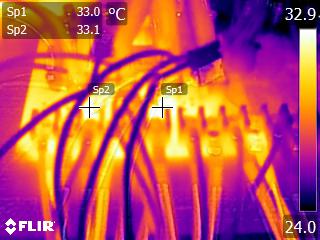
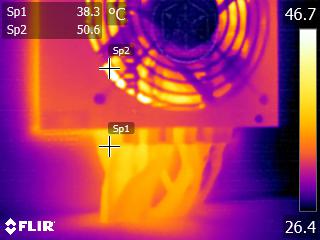
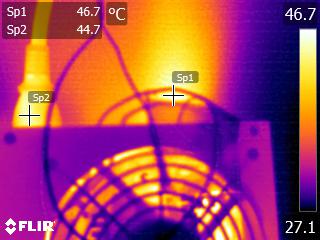
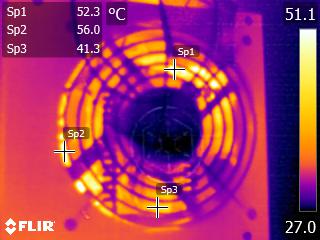
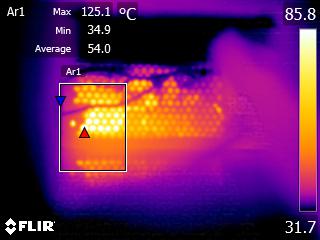
Our IR camera doesn't reveal dangerously high temperatures inside the PSU. Apparently, the 120 mm fan does a fairly good job despite its low maximum speed.
Get Tom's Hardware's best news and in-depth reviews, straight to your inbox.
Current page: Cross-Load Tests And Infrared Images
Prev Page Protection Features, Evaluated Next Page Transient Response Tests
Aris Mpitziopoulos is a contributing editor at Tom's Hardware, covering PSUs.
-
panathas I don't understand, first you said: "On the other hand, it doesn't have an issue with inaccurate power-good signals that last longer than the corresponding hold-up time" and your last words were: "It is a great shame though that it is affected by the inaccurate power good signal disease". Which one is true? Also in the CONS section you only mentioned the Hold-up time and not the power good signal.Reply -
turkey3_scratch Reply18699506 said:I don't understand, first you said: "On the other hand, it doesn't have an issue with inaccurate power-good signals that last longer than the corresponding hold-up time" and your last words were: "It is a great shame though that it is affected by the inaccurate power good signal disease". Which one is true? Also in the CONS section you only mentioned the Hold-up time and not the power good signal.
First one must have been an mistake since it does drop the PWR_OK after the voltages are already out of spec. -
Aris_Mp Yes something was way out in this phrase. It is fixed now.Reply
This PSU is affected by a fake power good signal, which usually is the case in Sirfa's platform.
In the cons section. Sometimes I don't mention the fake power good signal, when the hold-up time is already too low. But I will make sure that I do from now on. -
Virtual_Singularity ty for the review. So, I know it's kind of not really adequate for comparison considering the watt difference. But, looking at the performance of that last Lian Li sfx reviewed, and this thing, still must say that LL didn't do so badly, though they could really help things if they extended that warranty by at least a year or more.Reply -
Co BIY I think the exterior photos need something for scale. Full-size black boxes and tiny high efficiency black boxes look the same size on a screen without something for scale.Reply
No comment on vacant modular socket plugs. First time I've seen that. Also the copper bars aren't a feature I've seen commented on before.
